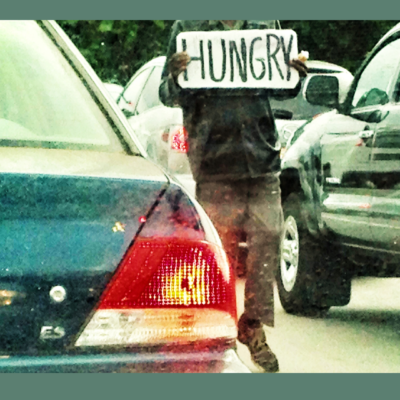Nothing leavened may be found among you, nor shall leaven be found anywhere within your borders.
Passover cleaning – most Jewish mothers start thinking about it with dread a couple months before Passover. On top of getting rid of all leaven products in the home, it means washing out kitchen cupboards and drawers, scrubbing down the refrigerator and the freezer, and vacuuming under furniture and between sofa cushions. Passover cleaning is a thorough process which we manage to turn into arduous one!
The Bible, however, does not command us to do “Passover cleaning” in the way that we do it today. Exodus 12:19 simply says that there should be no leaven found in our houses for the seven days of Passover. It doesn’t say to search out every last crumb in the furthest corner of your house. God commanded the children of Israel to eat only unleavened bread during Passover as a remembrance because it is, as Deuteronomy 16:3 says, the bread of affliction they ate when they fled Egypt in haste. God commands us to remember in many places in the Bible because all of us humans so easily forget what God has done in our own lives, let alone in the lives of our forefathers.
Biblical Holidays – a spiritual meaning beyond the literal
As New Covenant Jewish believers, we know that beyond the literal meaning of the biblical holidays in the Hebrew Bible, there are also symbolic, prophetic meanings for all of us today which the New Testament makes clear to us. Passover, the seven-day feast God commands the children of Israel to observe as a remembrance of their exodus from Egypt, pointed to the ultimate Passover which would happen many years later when God provided His perfect Passover lamb so that we all may be set free from bondage to sin. In that symbolic context, many elements of the Passover feast take on new and deeper spiritual meanings. One of those elements is leaven.
Leaven
The gospels tell of Yeshua’s warning His disciples of the “leaven” of the Pharisees. At the time, they were confused about His use of the term “leaven” in a symbolic sense because they were still in the “literal” mindset, and He had to explain it to them. By warning of the Pharisees’ leaven, Yeshua was warning them of falling into a particular sin they excelled at—hypocrisy. Later, when Yeshua took the unleavened bread on the night of the Passover before His crucifixion, He made another powerful correlation to leaven, or the lack thereof:
And He took bread (unleavened matza), gave thanks and broke it, and gave it to them, saying, “This is My body given for you; do this in remembrance of Me.”
-Luke 22:19
What a powerful image of Yeshua’s sinless (free from leaven) life, pierced and broken for us! The unleavened bread of affliction now symbolized the great affliction that He would endure on our behalf. Later on, the Apostle Paul would give us even more clarity about the spiritual meaning of leaven and what it symbolizes in our lives:
Don’t you know that a little yeast leavens the whole batch of dough? Get rid of the old yeast, so that you may be a new unleavened batch—as you really are. For Christ, our Passover lamb, has been sacrificed. Therefore let us keep the Festival, not with the old bread leavened with malice and wickedness, but with the unleavened bread of sincerity and truth.
-1 Corinthians 5:6-9
Clean out that leaven!
God’s original command to the children of Israel to remove all the leaven from their homes turns into a command for all of us to remove the sin in our lives. Passover, along with the holy Day of Atonement, are biblically appointed times that direct our hearts towards repentance. Even though our spirits have been born again, a purified new creation, and filled with the Holy Spirit thanks to Yeshua’s atoning sacrifice for sin, we must still live lives of repentance because we are still at war with sin in our souls and physical bodies—with increasing victory thanks to God’s abundant grace!
The New Testament is filled with countless warnings and exhortations to beware of allowing ourselves to fall into sinful behavior, to repent when we do and to continue fighting the good fight. Another way to think of fighting the good fight is Passover cleaning!
B’deekat Chametz – Checking for Leaven
On the night before Passover when all the cleaning and removing of leaven has been completed in orthodox Jewish families, the father takes a candle and a feather to search for leaven in the house, looking in all the nooks and crannies where it might have been missed and using the feather to sweep out any remaining crumbs he finds. The following morning, the family gathers together and the father burns whatever leaven he found in his search together with the rest of the leaven that was removed from the house.
The Father’s Candle and Feather
While the strenuous religious lifestyle of the orthodox is burdensome with constant attention to rigorous rules and regulations, we can possibly learn something from their ardent attention to searching out leaven in our lives if our motivation is love for God. Some feel burdened by the idea of repentance, and some may avoid it altogether due to feelings of shame from the enemy or because they have been wrongly taught that there is no need to repent after accepting Yeshua as Lord. Whatever the reason, God is gently calling each of us to seek out the leaven in our lives.
Now imagine God the Father as the Father of your household: invite Him to come with His candle to help you find the leaven with the gentlest of tools—a feather. He is the only one you should let in to join your search because He is motived only by love, and He is the only one with the authority to burn the leaven—completely removing it from your life!
Wishing you all a meaningful holiday season, filled with the blessings and wonder of God’s amazing love for us!
by Gil Afriat







Holly Wallace says:
I like the way you keep simple things simple and look for God’s heart in the matter. You are a good writer and I appreciate your articles!
Michele Paris says:
Shabbat Shalom and Hag Sameach Pesach
I completely agree with you Holly Wallace!!
David says:
Nice analogy, picture, and image. And as you also noted, the real meaning is the examination of ourselves and the sin in our lives….not necessarily the rigorous sweeping of the cupboards….which would look awfully like legalism. Particularly mindful to me as I was once a part of a more orthodox, fundamental Baptist church which struggled at times w/perhaps more emphasis on keeping the rules and not the spirit.
Appreciate the parallels and message. Nicely done.
Karen Foster says:
What beautiful words and simple explanation! I’ve never understood Judaism or Messianic Jews and this article really helps me learn! Thank you and Happy Holidays.